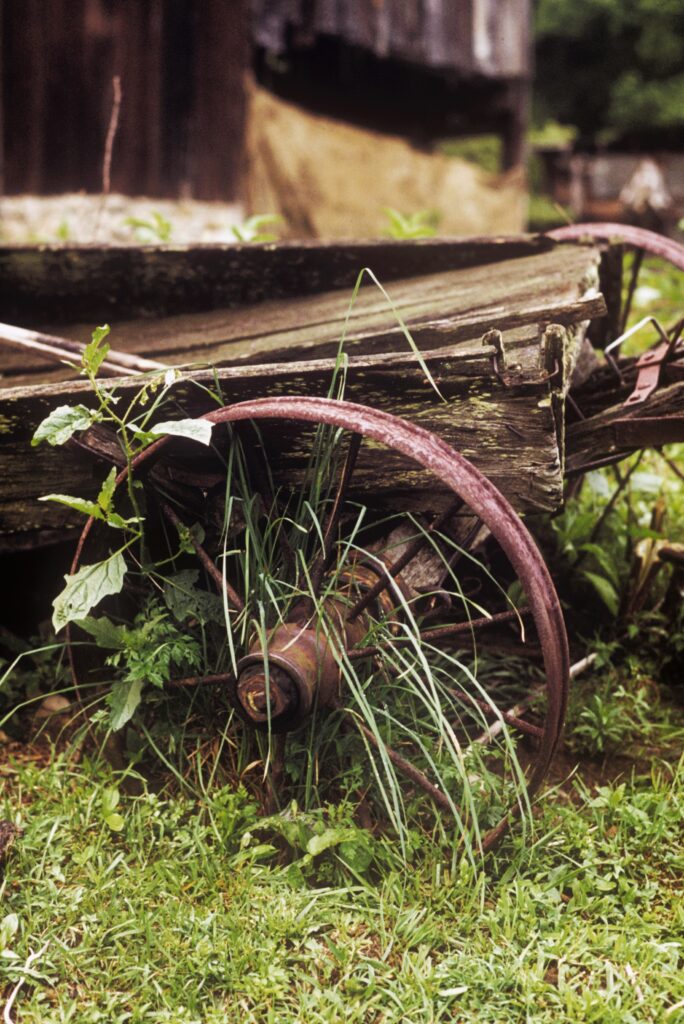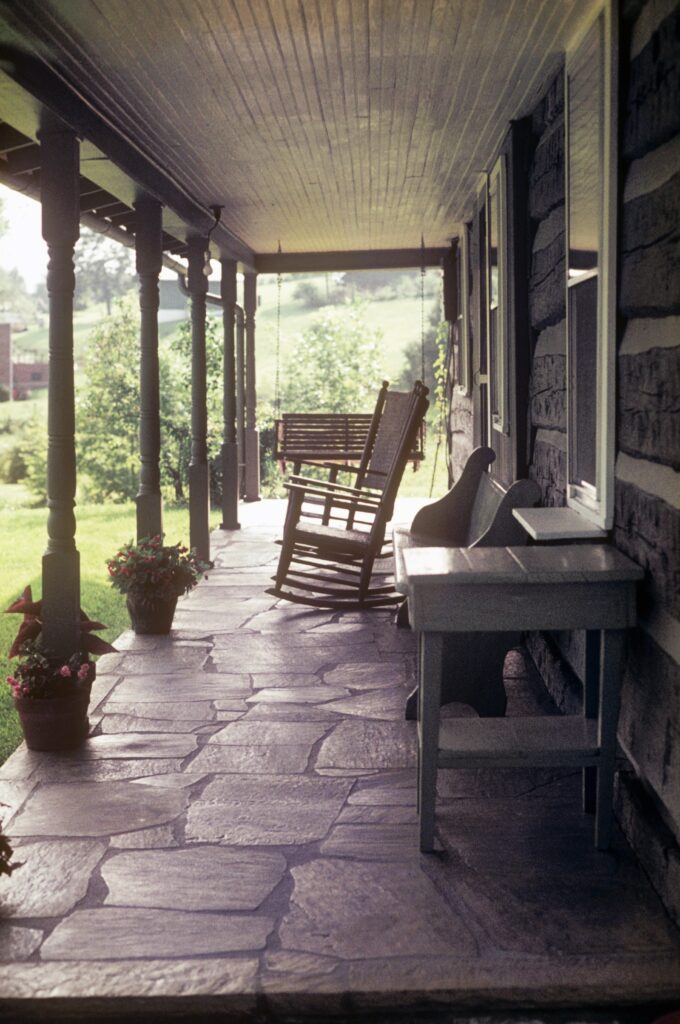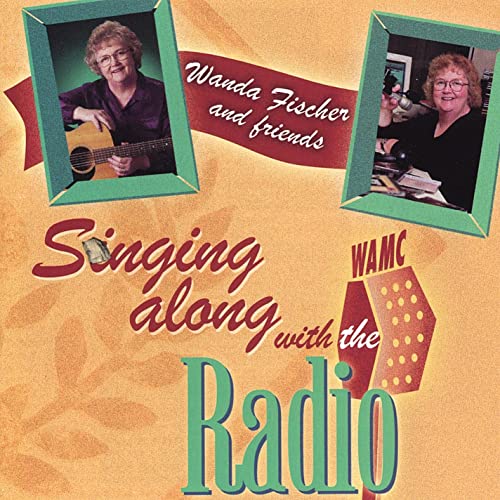
(Wanda Fischer photo)
Spending Two Weeks in Southwestern Virginia Was Always a Challenge
My father was from the south, my mother from the north.
For fifty weeks out of the year, we lived on the South Shore of Boston. Neither of my parents graduated from high school, but they were hard workers. In fact, my father had left his home in southwestern Virginia so that he could find a job in Boston, where my mother had been born. My mother, unlike most women in the 1950s, worked outside of the home. She worked for Polaroid Corporation, first as a film packer, then worked her way up to become an optical technician.
During that time, most big corporations would close down their plants for a specific time every year. No such thing as an individually requested vacation existed for the rank-and-file employees. For my mother, it was always the last two weeks in July.
There was never a question where my family would be going during my mother’s off time. We had no exotic trips abroad or to any tropical theme parks. Instead, we headed to my father’s hometown in Hiltons, Virginia, located at the very soutwesterm tip of the state, on the Tennessee border, and near Big Stone Gap, West Virginia. The drive from Boston took about eighteen hours; we began taking the trip before the interstate highway system was completely built, so it was often on back roads and over curvy mountain areas. My father wanted to drive straight through the night to get there. When I was young, I didn’t realize that the reason my parents didn’t stop at a motel was because they couldn’t afford to. As I got older, I began to understand why he wanted to keep driving–no money to stop and dawdle.
My grandparents and my Aunt Minnie and Uncle Conley lived at the foot of Clinch Mountain. The scenery was breathtaking, looking to the top of the mountain, with my cousin Connie’s horse Prince prancing around the fenced-in area behind Minnie’s house. They had a smoke house, a well house, a wash house–well, it seemed to this northern girl that they had a special house for everything. I was sixteen when they added indoor plumbing to the mix. We used an outhouse (yes, indeed–an outhouse, not those ones you see by the side of the road, but a real, honest-to-goodness outhouse) for our bathroom needs. At night, we had a chamber pot next to our beds for those middle-of-the-night needs.
What I remember the most, though, was trying to sleep during the brutally hot nights. Since there wasn’t indoor plumbing for the most part, I couldn’t have expected air conditioning; we didn’t even have that at home. (We did live next to the seashore, so we got some nice breezes off the Atlantic Ocean at home). Aunt Minnie didn’t even have fans in her house. She had a tin roof, and, when the weather was wet, we felt a pounding symphony of driving raindrops overhead. It sounded to me as if we were in a war scene, under siege, pummeled by a never-ending Gatling gun.
We would watch thunderstorms rolling across Clinch Mountain in waves of black-and-purple clouds, heralding the oncoming onslaught of punishing storms. If one of us July visitors were outside at the times the clouds began, Aunt Minnie would warn us to move inside before the lightning began. She always just knew.
My grandfather was a tobacco farmer who plowed the fields using two mules. The only name I remember for the mules was Toby. He had another one, but I can’t remember that mule’s name. He and Gram had lots of dogs just running free around their log cabin, “up the holler,” as my father always said. Once, I told my grandfather that I particularly liked one of his dogs named Dusty. “Don’t get too attached to him,” Grandaddy said. “He’s just a snake dog.” When I asked him what that meant, he explained that Dusty’s job was to make sure there were no snakes in the garden or the barn when Gram went out to pick vegetables or hunt eggs. “If Dusty draws the snake away from the people, he may get bit and die in the process. But the people, they don’t get bit.”
We didn’t have “snake dogs” on the South Shore of Boston. We had pets, who came into our houses to stay out of the cold and heat. In southwestern Virginia, dogs were not allowed in the homes.
One of the things I always looked forward to when we went every July was a visit from my father’s friends, with whom he’d attended school.–members of the famous musical Carter Family. They would stop by and play music for my father, and he would beam ear-to-ear when immersed in the music he loved. I didn’t know the Carter Family was famous until I was fourteen years old. We’d been singing their songs for a long time, but until I read an article in the newspaper while I was visiting Aunt Minnie about the Carter Family’s influence on folk and bluegrass music, I had no idea. I only knew my father talk about them and the adventures they’d had in school as young children. They often came to sing at our family reunions. June Carter, who later married Johnny Cash, was a good friend of my dad’s family.
I also looked forward to hearing my grandmother tell stories. She knew some really tall tales–as did my father–and she regaled us with them in from of her fireplace, even on hot July days, when the fireplace had no use except for a background to her spooky tales. She was a master quilt maker, and I have several of her wares in my home.
But we weren’t needing quilts then. We were sweltering from the summer heat.
I often wonder whether or not I’d be able, today, to withstand staying in the second floor of Aunt Minnie’s house these days, with no fan, no breezes wafting through, no air at all, in a musty, old house from the early 1800s, or whether I was just a wimpy, pampered kid who was used to opening the window in my hometown and depending on the Atlantic Ocean for relief on hot summer days. My youngest sister has moved to southwestern Virginia, to the very same town where our dad grew up. I have no desire to find out if I could tolerate the heat at the ripe old age of seventy-five. I’ll live with the memories of the hot, tin roof, the stifling air, the thunderstorms–all of which were bearable only because my father loved it so much, and because Aunt Minnie, Gram, Grandaddy, Uncle Conley, and my cousin Connie (and her horse Prince) were there.
And, of course, it only lasted two weeks out of every year.

Aunt Minnie’s front porch (photo by Wanda Fischer)


0 Comments